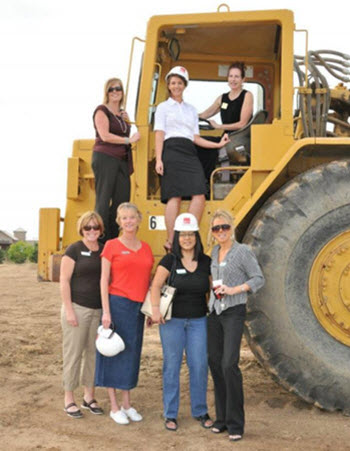Beyond the Desk: Resources for Innovative Reference Services
 Library services often begin with a question. Do you have this book? Can you help me find information for my report? Which country is the largest producer of coffee beans? As we grow up we are taught to ask questions to help us learn new information, challenge viewpoints, and clarify our understanding of the world around us.
Library services often begin with a question. Do you have this book? Can you help me find information for my report? Which country is the largest producer of coffee beans? As we grow up we are taught to ask questions to help us learn new information, challenge viewpoints, and clarify our understanding of the world around us.
In the classroom, teachers are prepared for the questions they receive because those questions most likely relate to the curriculum being taught. In libraries, staff have to be prepared for any question under the sun, often from patrons that have vastly different viewpoints than each other (and possibly than our own). It is the ability to answer these questions, no matter how out of the blue they may seem, that can make library staff seem like information superheroes.
The apparent ease with which staff provide information is, of course, the result of great preparation and a thorough knowledge of the resources available. This month's resources highlight some of the best reference content on WebJunction to help library staff take their information superpowers to the next level.
Level Up: What's Your Information Superpower?
 As natural as it is for people to ask and answer questions, in the library our approach to reference services is constantly in flux. Where large, imposing desks used to be the norm, today standards are shifting to collaborative spaces where library staff and patrons can work side-by-side. Where desks still exist, they are often designed to be approachable and friendly. Even so, more and more library staff are moving out from beyond the desk, answering questions out in the stacks, out on the web, or out in the community.
As natural as it is for people to ask and answer questions, in the library our approach to reference services is constantly in flux. Where large, imposing desks used to be the norm, today standards are shifting to collaborative spaces where library staff and patrons can work side-by-side. Where desks still exist, they are often designed to be approachable and friendly. Even so, more and more library staff are moving out from beyond the desk, answering questions out in the stacks, out on the web, or out in the community.
Maintaining a balance between traditional and contemporary reference approaches can be challenging. Learning what works and what doesn't, how to handle reference in social media, and all the different ways that technology can impact the reference environment is a big task. In our May 8 webinar, Reference Services: Tried, True, and New, Vanessa Irvin Morris, Assistant Teaching Professor in the College of Computing and Informatics at Drexel University, will lead a conversation about how reference services are changing and what we can do to stay on top of our information game.
Improved Reference Service: Now With 150% More Construction Equipment
 Reference in the library can be tough enough, but what about reference out in the community? At Douglas County Libraries (CO), librarians don't just wait for questions to come to them; they leave the buildings and embed the public library in the community. Through a series of projects and experiments, the Douglas County librarians have explored a new dimension of modern reference service, one that places their expertise at points of need to respond to the questions the public didn’t take to the library. By helping to define and answer questions in context, the embedded librarians add value to their community.
Reference in the library can be tough enough, but what about reference out in the community? At Douglas County Libraries (CO), librarians don't just wait for questions to come to them; they leave the buildings and embed the public library in the community. Through a series of projects and experiments, the Douglas County librarians have explored a new dimension of modern reference service, one that places their expertise at points of need to respond to the questions the public didn’t take to the library. By helping to define and answer questions in context, the embedded librarians add value to their community.
In September 2013, WebJunction was lucky enough to host Jamie LaRue, Colbe Galston, and Amy Long in the webinar, Leaving Fort Ref: Frontiers of Embedded Librarianship, as they shared their experiences building an embedded librarianship model in their library and taking their services out into the community. Check out Leaving Fort Ref - Reaching Out with Reference, a self-paced course based on the webinar, since retired.
As you consider whether or not you need this training, ponder these three questions: Can you name three community LEADERS that are really doing something in your community? Can you name three ORGANIZATIONS that are doing significant work in your community? Can you name three ISSUES that will be critical focuses for your community in the next 18-24 months?
Don't miss some of our other great webinars on reference service, covering super-topics like Wikipedia, 2-1-1, chat reference, digital branches, and more.
